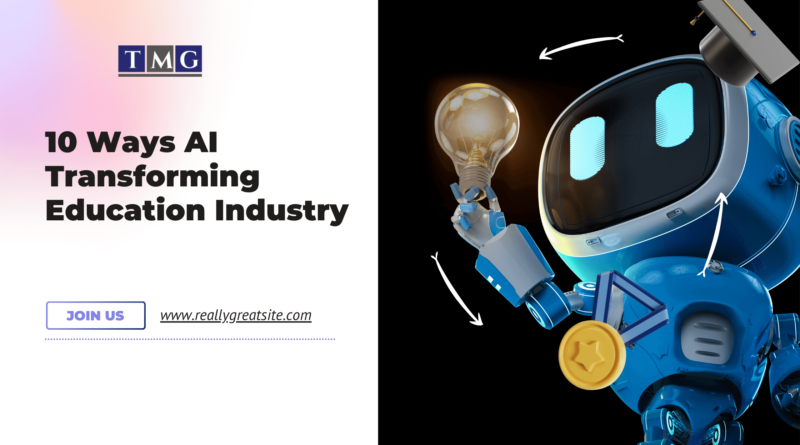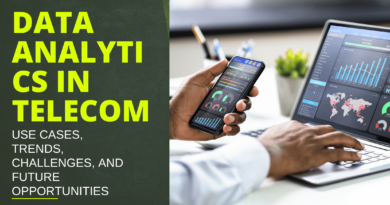How AI in Education is Transforming the Industry
Artificial Intelligence (AI) is revolutionizing education by offering innovative solutions to age-old challenges. From personalized learning to automating administrative tasks, AI is reshaping the educational landscape. This article explores ten applications and benefits of AI in education, followed by real-world examples and a glimpse into the future of AI-driven learning.
10 Applications and Benefits of AI in Education
1. Personalized Learning
AI enables personalized learning experiences by analyzing individual student data to tailor educational content. This customization helps address each student’s unique needs and learning pace, resulting in more effective education.
Benefits of Personalized Learning:
- Custom lesson plans
- Individual progress tracking
- Adaptive learning modules
2. Task Automation
AI can automate administrative tasks, freeing up educators to focus more on teaching and interacting with students. This includes tasks like grading, attendance tracking, and scheduling.
Automated Tasks:
- Grading assignments and exams
- Tracking student attendance
- Organizing timetables
3. Smart Content Creation
AI can help create educational content, including digital textbooks, interactive exercises, and multimedia resources. This ensures that the content is always up-to-date and relevant.
Smart Content Features:
- Interactive textbooks
- Custom quizzes
- Multimedia lessons
4. Adaptable Access
AI improves accessibility for students with disabilities by providing tools such as speech-to-text, text-to-speech, and real-time translation, making learning materials more accessible.
Accessibility Tools:
- Speech recognition software
- Real-time translation
- Customizable interfaces
5. Determining Classroom Vulnerabilities
AI can identify areas where students or entire classrooms may be struggling, allowing educators to address issues promptly and effectively.
Identifying Vulnerabilities:
- Monitoring student performance
- Analyzing participation data
- Predictive analytics for at-risk students
6. Closing the Skill Gap
AI-driven platforms can identify gaps in students’ knowledge and skills, offering targeted training to help them catch up and excel.
Skill Gap Solutions:
- Skill assessments
- Customized learning paths
- Continuous progress monitoring
7. Customized Data-Based Feedback
AI provides detailed, data-driven feedback to students and educators, helping them understand strengths and areas for improvement.
Feedback Benefits:
- Real-time performance analysis
- Personalized recommendations
- Detailed progress reports
8. 24/7 Assistance with Conversational AI
AI-powered chatbots and virtual assistants offer students round-the-clock support, answering questions, providing resources, and assisting with learning tasks.
Conversational AI Features:
- Instant query resolution
- Resource recommendations
- Learning assistance anytime
9. Secure and Decentralized Learning Systems
AI can enhance the security of educational data and facilitate decentralized learning environments, ensuring data integrity and accessibility.
Security Enhancements:
- Blockchain for data security
- Decentralized content distribution
- Secure student records
10. AI in Examinations
AI can streamline the examination process through automated proctoring, grading, and even creating personalized test questions based on student performance.
Exam Innovations:
- Automated proctoring systems
- AI-generated test questions
- Instant grading and feedback
AI Use Cases in Education – Real Examples
Google uses AI to power various educational tools and platforms, including Google Classroom, which helps manage coursework and communication between teachers and students. Google AI also provides tools like adaptive learning technologies and personalized content recommendations.
Duolingo
Duolingo leverages AI to offer personalized language learning experiences. Its AI algorithms adapt lessons based on the user’s learning pace and proficiency, ensuring a tailored learning journey.
Coursera
Coursera uses AI to enhance the learning experience by offering personalized course recommendations and using machine learning to improve the effectiveness of its content. AI-driven assessments and feedback help learners stay on track.
The Future of Learning: AI-driven Education
The future of education is increasingly AI-driven, promising even more innovative solutions to enhance learning experiences. As AI technology continues to evolve, its impact on education will grow, offering new ways to personalize learning, improve accessibility, and streamline administrative processes.
Future Trends:
- Virtual Reality (VR) and Augmented Reality (AR): AI combined with VR and AR can create immersive learning environments, making complex subjects more understandable and engaging.
- Lifelong Learning Platforms: AI will power platforms that offer continuous learning opportunities, helping individuals keep their skills updated in a rapidly changing job market.
- Advanced Analytics: AI will provide deeper insights into student performance and learning patterns, enabling more precise and effective interventions.
Conclusion
AI is transforming education by providing personalized learning experiences, automating administrative tasks, creating smart content, and improving accessibility. Real-world applications by companies like Google, Duolingo, and Coursera showcase the potential of AI in enhancing educational outcomes. As we look to the future, AI-driven education promises even more innovative and effective ways to teach and learn, preparing students for a rapidly evolving world.




